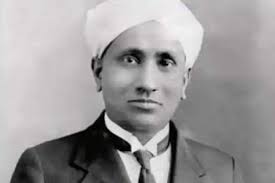“I would like to tell the young men and women before me not to lose hope and courage. Success can only come to you by courageous devotion to the task lying in front of you.”
Born in 1888, in Southern India, in a Tamil Brahmin family, Sir Chandrasekhara Venkata Raman is one of the handful Indians to win the prestigious Nobel Prize (in Physics). A notable scientist in the pre-Independence era, his research has won many laurels and recognition from other peers from his community. His interest in Mathematics and Physics was honed since childhood since his father was a lecturer in these subjects.
Although he held a Masters degree in Physics, his career started as an accountant in the finance department of the Indian government. However, in his quest to become a scientist, he bagged the role of a physics lecturer in University of Calcutta in 1917. While researching on scattering of light on different substances in 1928, he discovered that when a transparent object is illuminated by a beam of light of one frequency, a small portion of the scattered light emerges at various wavelengths different than the original light. This phenomenon of scattering of light at different frequencies was noted as the Raman Effect. This landmark discovery earned him the Nobel Prize in 1930.
Backed with his fascination with optics and acoustics, he published many research papers related to these fields. He was also selected as the Fellow of the Royal Society, an honour that was conferred on very few Indians. Knighted by the British government, he founded the Indian Academy of Sciences in Bangalore, wherein he continued his work on the Raman Effect. He published his work through the science journal Proceedings.
“We must teach science in the mother tongue. Otherwise, science will become a highbrow activity. It will not be an activity in which all people can participate.”
Apart from this, he has also been honoured with many memberships, medals, and recognition from scientific communities across the globe. He was awarded the Bharat Ratna award in 1954. In a time when science was considered rarely as a career option due to lack of infrastructure, C.V. Raman chose to shine in the field in physics, despite being completely educated in India. However, he refused money from the government for his institutes as he did not want it to work as per government pressure.
His work cannot be considered to be lesser than any other political leader during the national freedom struggle. Interestingly, he is uncle to Subrahmanyan Chandrasekhar, who was also a Nobel Prize winner. Today, there are a lot of educational institutions, universities and NGOs named in his honour, to encourage young enthusiasts aspiring to become world-renowned physicists.
“I strongly believe that fundamental science cannot be driven by instructional, industrial, governmental or military pressures. This was the reason why I decided, as far as possible, not to accept money from the government.”
Birth Score – 3/5
Pride Score – 5/5
An impressive 8/10 Notable Brahmin Score.
